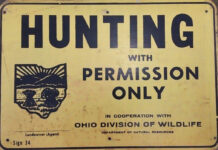“I did hear Cousin Phil say, ‘Why, Mame, there just isn’t any work at all to ranching in Colorado. We have three hundred and sixty-five sunshiny days in a year, and all a man has to do is toss out seed in the spring and harvest his crop in the fall.'”
— Little Britches: Father and I Were Ranchers, by Ralph Moody
One of the most dog-eared books among my favorites is the first written by Ralph Moody, telling of his life as a little boy dreaming big dreams of cowboy work. It is impressive to know that Moody didn’t even think of becoming a writer until he was in his 50s.
Moody, born in 1898, moved with his family to Colorado from their New Hampshire home, in hopes the dry air would help his father fight through tuberculosis. It was 1906, and this 8-year-old boy was hungry for a life working outdoors on the ranch.
Ranch work
His first paying job, at the ripe old age of 8, was serving as a hand to the very stern Mrs. Corcoran, a woman with “about thirty milch cows, and used to take cream to Fort Logan every day.”
In the summer, the cows were pastured in open grazing areas, and she needed someone to keep the cows from bolting into neighboring grain fields.
“She said she would pay me 25 cents a day, and I would only have to work from 7 in the morning till 6 at night. I guess Mother thought they herded cows on foot in Colorado, as they did in New England, so she said I could do it. I didn’t have any such ideas at all and was all excited about being a cowboy,” he writes, adding that his only worry was that he didn’t have a ten-gallon hat.
First day
His description of the first day, riding on “an old black plug named Ned” from the Corcoran’s corral, puts the reader right beside the boy telling the story. The cattle spied a nice, green alfalfa field and they moved a whole lot faster than the old horse Ned, who had “feet like footballs” and was uninterested in being a cowboy horse.
The shine of that quarter a day income was fading along with the fun, as the child jumped from the lame horse to chase cattle in his bare feet. A kindly neighbor on horseback briefly came to his rescue, and the young boy learned so much that first day, like how to climb aboard a horse’s neck, then kick to get the horse to lift a little fellow up.
“It was a terrible day. The quarter section wasn’t flat like our place, but was all rolly hills. And those cows knew more tricks than Hi’s blue roan,” he writes, referring to a cowboy performer the young boy had met.
Pay
Knowing he was surely fired, he listened to Mrs. Corcoran berate him as he put Ned back in the corral at the end of that long day. Ralph Moody’s father had come for him, and when the quarter pay was offered, his dad said to give it to the boy, who had certainly earned it.
“Now don’t go and lose it the first thing you do,” his boss said in her loud, gruff voice.
She was angry when Moody admitted he’d had a hard time keeping the cows together and out of neighboring grain fields.
“We were pretty near out to the road when Mrs. Corcoran yelled after us, ‘You be sure you ain’t late in the morning — right sharp on 7 o’clock.’ Raspy as her voice was, it sounded good to me,” he writes. “When we got home, (Mother) let me put my quarter up in the new cupboard, in her Wedgwood sugar bowl … it made me quite a hero with the other youngsters at home.”
He noted that the others did the supper dishes, which he no longer had to help with “now that I was a working man.”
Next week: A cowboy grows up fast













